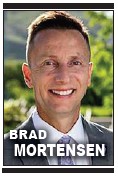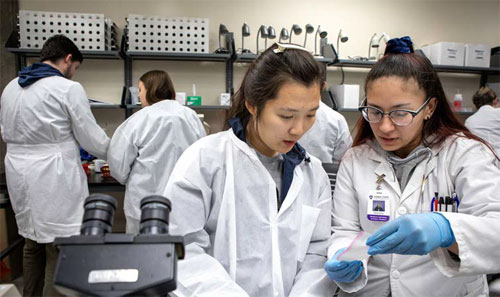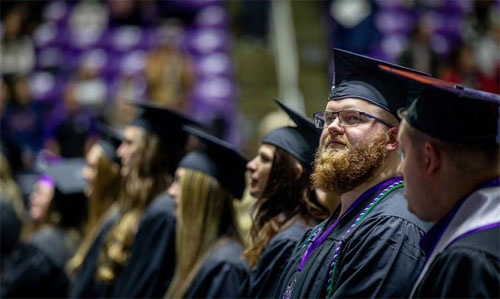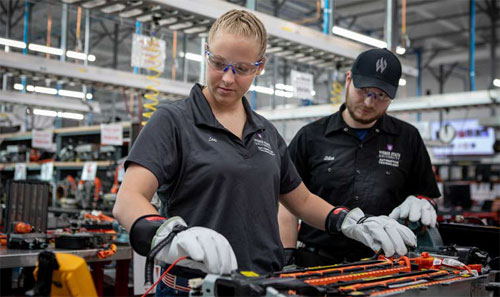
 Education is paying huge dividends and a major return on our investment.
Education is paying huge dividends and a major return on our investment.
In the business world, return on investment (ROI) is critical. It’s an essential analytic for success. Increasingly, the same question is posed about higher education.
Is a college education worthwhile?
For those of us who live and work in Northern Utah, I’m proud to say, “Absolutely.” Weber State University and our graduates play a key role in powering the economic engine for our region.{mprestriction ids="1,3"}
But don’t take my word for it. In 2021, AffordableSchools.net ranked Weber State as 19th in the nation for ROI. Earlier this year, a report from Georgetown University’s Center on Education and the Workforce found that a degree from Weber State is the only degree in Utah that ranks in the top 10 percent of 4,500 U.S. colleges and universities for ROI, whether it’s 10 years or 40 years after graduation.
Those kinds of findings underscore just how beneficial a degree from Weber State can be. But the returns on that investment don’t end with individual graduates. Our entire region benefits from the contributions our students make to our area’s economic vitality.
For more than 133 years, Weber State has been a responsive partner.

Lab work is part of the experience in the Dumke Interdisciplinary Education program at Weber.

Graduates of the Weber State University School of Education attend commencement ceremonies.

Students at Weber State University get hands-on experience with electric and hybrid vehicles.
All of Utah benefits from the economic impact of Hill Air Force Base, one of the state’s largest single-site employers. Beyond the nearly 22,000 jobs on base, Hill also supports a vibrant aerospace and defense industry that relies on our graduates from engineering, computer science, business and other fields.
The location of our WSU Davis campus in Layton, just southwest of the base’s south entrance, was intentionally selected to provide close, convenient access to military and civilian personnel. Our engineering and computer science programs cannot produce graduates fast enough to keep up with the demand from our aerospace and defense industry partners.
This summer, Weber State officially opened the Miller Advanced Research and Solutions (MARS) Center at Falcon Hill in Clearfield. This resource will help Hill Air Force Base connect with academic, government and industry partners who are working on next-generation technologies needed for national security. This is also a location where WSU faculty and students will be able to apply their knowledge and skills to develop innovative solutions for the aerospace industry.
One of the reasons our graduates are in such demand is our use of industry advisory boards. These groups educate our faculty about emerging trends, so we can adapt our curriculum to meet ever-changing workforce dynamics.
Weber State is currently partnering with Catalyst Campus for Technology and Innovation and Ogden City to pursue the creation of a sensitive compartmentalized information facility (SCIF). A dedicated SCIF like this is essential for military and national security/national defense research and development, while also providing a distinctive line on the resume of our students who have security clearance to such a resource. Sites under consideration would provide close proximity to our Weber State downtown location, which for nearly a decade has housed StartUp Ogden and served as an incubator for entrepreneurs and small businesses — essential players in any region’s economic vitality.
Our accounting and taxation graduates from the John B. Goddard School of Business & Economics not only help many small and mid-size businesses balance their books, but also support the IRS presence in downtown Ogden.
This year also marks the 70th anniversary for our Annie Taylor Dee School of Nursing. The Dee School of Nursing produces more registered nurses than any other institution in Utah. What you may not know is that the program got its start in 1953, when it was one of six schools in the nation to pioneer a two-year degree program aimed at addressing a nursing shortage.
Over the years we’ve grown to add a bachelor’s degree, two master’s degrees and a nurse practitioner degree, Weber State’s only doctoral program. Our graduates in nursing, radiologic sciences, medical laboratory sciences, respiratory therapy and other programs within the Dr. Ezekiel R. Dumke College of Health Professionals are in high demand by the healthcare industry, including Intermountain Healthcare, the second-largest private employer in Utah. But we’re not stopping there, as plans are in place to start a physician assistant program in 2023, pending accreditation review.
Five of our top 10 degree-granting programs are in the healthcare field.
One hundred years ago, what was then Weber Normal College first became a post-secondary institution. One of our primary functions was training teachers. Today, we continue to serve the next generation of Utah by graduating more than 100 teachers annually, many of whom go to work in the Davis, Ogden and Weber school districts — yet another way WSU provides a meaningful ROI for our region.
Our quality of life is also the result of the scenic beauty that surrounds us and faculty in environmental and social sciences are studying the Great Salt Lake and its ecosystem to ensure we protect and preserve that vital resource.
Weber State has also made a commitment to fiscally responsible sustainability efforts. We have saved more than $18.5 million on utility expenditures since 2010, reducing carbon emissions and air pollutants. The past two years WSU has also saved 50 million gallons of water on our campuses.
Weber State owes a debt of gratitude for the support of our surrounding communities — and we are always looking for ways to give back.
As the primary convening authority, Weber State has created the Ogden Community Action Network (Ogden CAN), which is partnering with other anchor institutions in Weber County to address issues contributing to systemic poverty and its consequences in East Central Ogden.
We also recognize that the demographics of Davis and Weber counties are changing. As both counties see an increase in Hispanic/Latino populations, it’s imperative that Weber State’s workforce and enrollment reflects the diversity of our community. To that end, last year, Weber State set a goal of becoming an emerging Hispanic Serving Institution, which means we hope to have 15 percent of our student body self-identify as Hispanic or Latino by 2025.
At Weber State University, we believe that the most important investment we can make in our community is educating the citizens of Utah.
Brad Mortensen is the 13th president of Weber State University.{/mprestriction}







